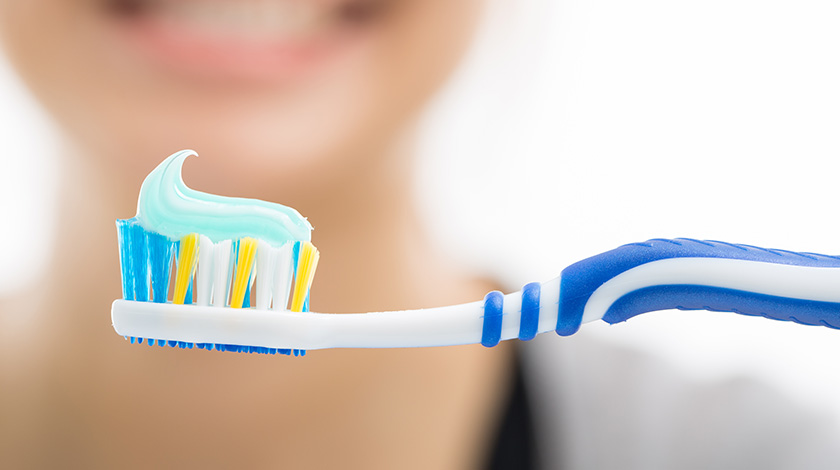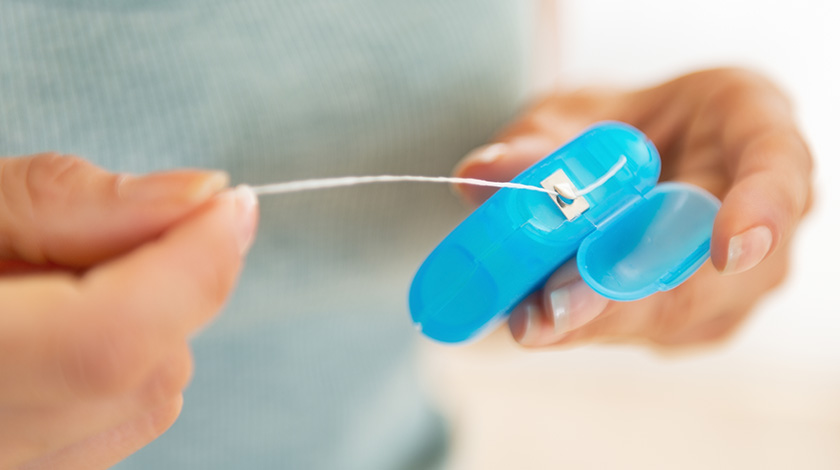Survey after survey has shown that when it comes to doing well in love and relationships, having a twinkling set of pearly white teeth is essential. Just take a look at this survey from the world’s largest dating website Match.com1, in which a stunning 71% of women and 58% of men rated teeth at the top of their must-have list for prospective suitors! But there’s a lot more to good dental hygiene than success with dating relationship. Potential benefits of strong, clean teeth include lower risks of heart disease, stroke and diabetes, fresh breath and healthier offspring. Here are three dental hygiene tips to help you capture those rewards.
1. Choose Fluoride Toothpaste
There may have been a puzzling mini-backlash against fluoride toothpaste in recent years, with some spurious claims that fluoride causes low IQ or sterility. Scientists, however, are unequivocal about what the evidence says2. Sure, if you drank two litres of pure fluoride, you’ll probably get very ill – but tiny amounts of fluoride in toothpaste won’t come within a mile of giving you any nasty side effects.
On the contrary, due to fluoride's innate ability to strengthen tooth enamel, the use of fluoridated water and toothpaste has been consistently linked with drastically lower rates of tooth decay3. So when it comes to choosing your toothpaste, reach for the fluoridated brands on the supermarket shelf. Your teeth will thank you for it!
2. Flossing Daily
Put simply, even the most expensive toothbrush isn’t enough to remove all the food particles and bacteria that build up in the tight spaces between your teeth over the course of a day. Flossing completes a healthy dental regimen by serving as an interdental cleaner, ensuring that every inch of your teeth – even the bits hidden from view – stays squeaky clean.
Need more incentive? Gingivitis, a nasty gum disease that can lead to painful inflammation and even tooth loss is most frequently caused by the decomposition of food particles trapped where the gum and teeth meet4, and is most effectively treated against by daily flossing.
3. Seeing a Dentist Regularly
That old adage “Prevention is better than cure” holds as true for dental health as it does for general health, but even the most dentally diligent could benefit from having a professional’s seal of approval from time to time.
Having a dental checkup at least once a year ensures any abnormalities – from wisdom teeth to burgeoning cavities – are nipped in the bud before causing any damage, and gives you the peace of mind to keep flashing those pearly whites wherever you go!
Resources
- http://www.usatoday.com/story/news/nation/2013/02/04/singles-dating-attraction-facebook/1878265/. Visited 13 March 2017.
- http://www.livescience.com/1492-fluoride-myths-bad-baby-teeth.html. Visited 13 March 2017.
- http://ilikemyteeth.org/fluoridation/fluoride-toothpaste/. Visited 13 March 2017.
- http://health.howstuffworks.com/wellness/oral-care/products/5-reasons-flossing-is-important.htm. Visited 13 March 2017.
© Cigna Healthcare 2023
Information provided in this article is intended for health and fitness purposes only and is not intended for use in the diagnosis of disease or other conditions, or in the cure, mitigation, treatment or prevention of disease (see Terms & Conditions for details). Any health-related information found in this article is available only for your interest and should not be treated as medical advice. Users should seek any medical advice from a physician, especially before self-diagnosing any ailment or embarking on any new lifestyle or exercise regime. Any information contained in this article may not be suitable, accurate, complete or reliable. Cigna Healthcare accepts no responsibility for the content or accuracy of information contained on external websites or resources, or for the security and safety of using them. "Cigna Healthcare" and the "Tree of Life" logo are registered trademarks of Cigna Intellectual Property, Inc. in the United States and elsewhere, licensed for use. All products and services are provided by or through operating subsidiaries, and not by The Cigna Group.






